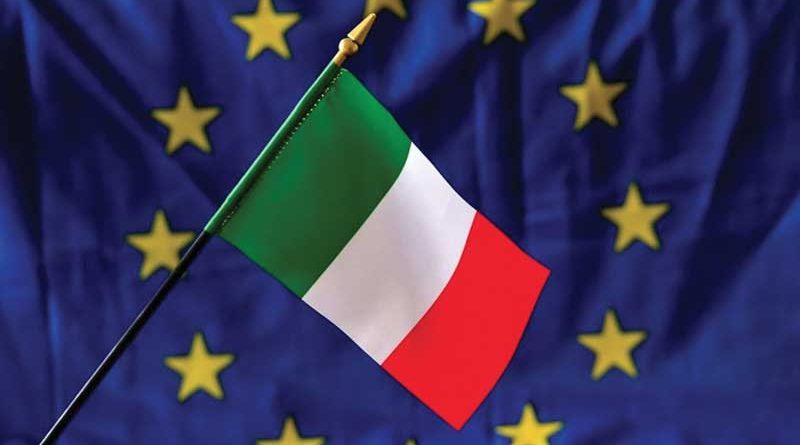After Brexit, is an Italexit possible?
What would happen if Italy were to abandon the euro? What would be the effects for companies and citizens? The opinions of experts are somewhat in contrast. Let us examine the possible scenarios which appear and the benefits and damages for our country
by Renato Uggeri
The debate on Italy’s exit from the euro (Italexit) is a very hot topic for the public opinion. After all, as from 2007 citizens in favour of the euro slightly decreased (from 69% to 66%) and among member countries of the EU, Italy is the one where the loss of consensus was greater. The exit of Great Britain from the European Union (Brexit) decided upon in 2016 therefore rekindled the discussion on this topic. Which could the consequences of an Italexit be? Would it help growth? Would it lead to inflation and to a debt crisis?
Who is afraid of Italy leaving the euro
The idea of Italy outside the euro is fearsome for companies all over the world. This thought was confirmed by a recent quarterly opinion poll by CNBC Global Council, which represents some of the largest public and private companies. Almost 77% of respondents coming from all over the world is afraid that Italy might turn its back on Europe. Almost 2 respondents out of every 3 said that they are a bit worried that Italy might actually vote to leave the euro, because this would have a negative impact on their company in the next six months; the percentage reaches 90% if the question concerns fears for the entire European economy.
What do less skeptical persons think
However, according to Joseph Eugene Stiglitz, Economics Nobel prize winner in 2003, abandoning the single currency would bring evident advantages to our country. “The Eurozone needs a radical reform”, he said in a recent interview, “but since this will not occur because of Germany’s opposition, Italy would do well to abandon the single currency. A daring move, but one which would bring clear, linear and considerable benefits”. Germany’s Schäuble, French economists and many others would like Italy to abandon the single currency, to protect us from speculations and encourage exports. And not only Germany is evaluating the consequences of Italexit. Northern countries such as Holland or Finland look to Rome as Europe’s sick man and turn up their nose at the concessions which the Commission makes regarding Italy’s public finance.
Someone in the meantime prepares plan B
According to a study by OFCE, the French Economic Observatory, the costs of an exit from the Eurozone would probably not be as high as one might be led to think for countries with a deficit such as Italy or Spain, but it could be higher than expected for countries with a surplus. By returning to the Lira, Italy would be the country in the Euro area with less economic problems and which would run less risks in terms of national debt. After a significant devaluation, in the long term the Lira would end up being stable and would actually have the potential of gaining 1% with respect to the euro. Meanwhile, Germany is already preparing its plan B: if Italy were to follow up on its threats of an Italexit, the entire “arsenal” of the EU would be deployed to isolate and protect from “contagion” the most vulnerable countries.
What if the Eurozone were to fall apart?
The analysts of Money.it, in their report “Return to the Lira: advantages and disadvantages” visage a scenario where it is not Italy which leaves the euro but the Eurozone which falls apart. From this starting point the study developed to understand what would happen in such a context, not considering possible consecutive defaults of countries in the euro area. According to the analysis, the advantages of the return to the Lira would be the following: devaluation of the currency and manageable inflation, increase in industrial production and export, better distribution of salaries, growth of occupation. These on the other hand would be the disadvantages: more taxes on consumption, sky-high interest rates, consequent increase in national debt.
What wold the possible effect be?
Since abandoning the euro would lead interest rates to skyrocket, the State would find it difficult to collect funds and, in this case, our public finances could be in even worse shape than today. It was the entry into the Eurozone which allowed interest rates to become lower, so as to provide Italy with a possibility of containing loans. By abandoning the euro, rates would climb up again. On the other hand, returning to the Lira would attract foreign investors, also encouraged by the quality of our industrial production, and t would therefore be easier to pay back the public debt. Free from community fetters, Bankitalia would start printing currency to sustain public debt. We would return to the high inflation which e experienced in the Seventies or Eighties. The process of imported food and raw materials would skyrocket. The high cost of living would therefore become a huge asset tax Italians, which would considerably reduce the purchasing power of salaries and pensions. The peak in costs sustained by companies to borrow money would knock out investments and the companies themselves, thereby causing a considerable increase in unemployment. Some small advantages would only be felt by those companies which export goods with little added value, which in any case would have to deal with the loss in the purchasing power by families and the consumption crisis /but even with the need of aligning salaries to the race of inflation).
How would the markets react
Meanwhile, the financial markets chastised the idea of an Italexit. An alarm bell which has a precise meaning: leaving the euro or carrying out extraordinary operations on national debt could have devastating effects, besides being difficult to realize from a technical standpoint. Going from one currency to another is not like turning the light on or off: complex technical passages would be involved, from the withdrawal of the old currency to the placement into circulation of the new one. There would be political consequences, implicit in the treaties, because euro and adherence to the Union are strictly connected.
The Greek crisis relaunched the theory of those who want Italy to abandon the euro. Bidding farewell to the single currency and returning to the lira, according to analysts, would imply for the national currency a devaluation of 20 to 30%. This would cause the cost of such raw materials as oil and gas to soar. At the same time, this would be the amount of the decrease of the value of real estate.
Ubs analysts, when introducing the possible consequences of Italy’s exit from the euro, indulged in a joke: “Monetary unions are like Hotel California in the song by the Eagles: members may check out, but they may (almost) never leave”. In the case of Italy, a country of savers, it would be difficult for an exit from the euro to obtain popular consensus. And European partners “could be even less kind to Italy than they have been with the United Kingdom, given the havoc that Italy would wreak by leaving the EU”.

